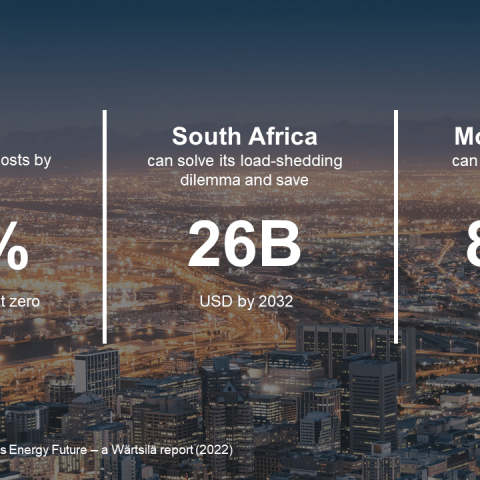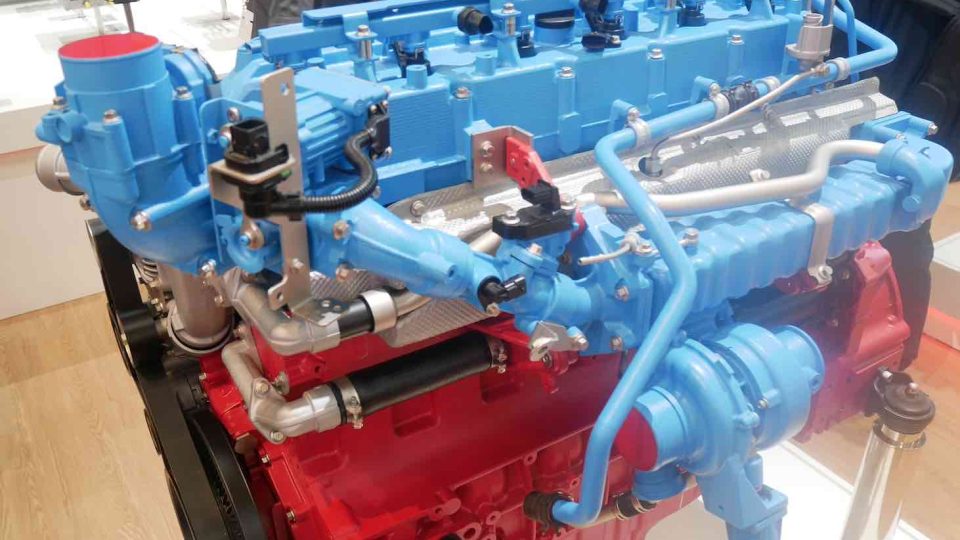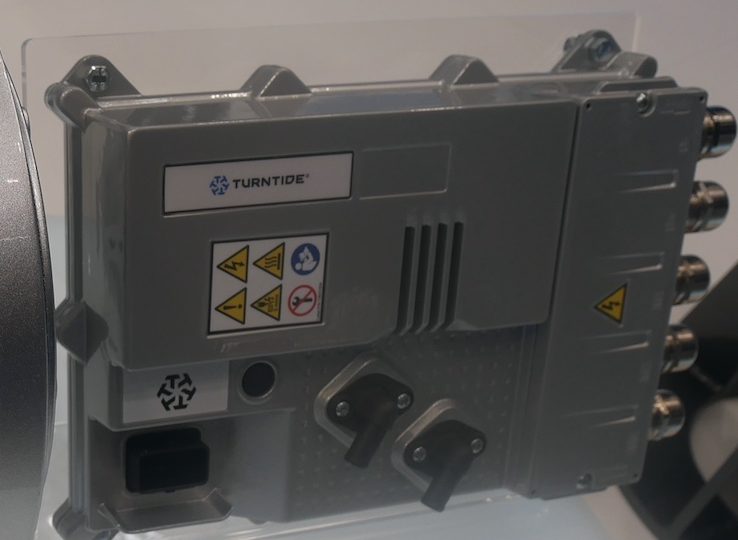Wärtsilä report: COP27 provides an opportunity for Africa’s clean energy future
The climate change conference COP27 offers a unique opportunity to increase energy access and lay the foundations for decarbonisation across Africa, but wealthy nations must deliver on their climate finance pledges to unlock the continent’s potential, according to a new report from Wärtsilä.

“Pathways for Africa’s Energy Future,” a report from Wärtsilä, provides power system modelling of three African countries, Nigeria, South Africa and Mozambique. It finds that they can leapfrog some developed nations by not embedding inflexible fossil fuel-based systems. To enable such a massive transformation a combination of climate finance, effective planning and system reforms will be essential.
The Wärtsilä report demonstrates that replacing coal with renewable energy combined with flexibility from engines and energy storage is the most effective way to reduce energy costs, increase energy access and improve reliability. The modelling found that renewable energy and flexibility can generate enough energy to provide power for close to 100 million people in South Africa, Mozambique and Nigeria who currently do not have energy access, if it were matched with the required grid infrastructure. These systems will require a total investment of around USD 119 billion over the next decade, which will not be possible unless wealthy nations deliver on the promise made in 2009 to deliver USD 100 billion annually in climate finance from 2020.
Håkan Agnevall, President and CEO, Wärtsilä Corporation said: “Despite contributing less than 3% of the world’s energy‐related carbon emissions, African countries are among the hardest hit by climate change. COP27, hosted in Egypt, is the perfect opportunity to deliver on global climate finance pledges so that, as a global community, we can seize this moment to act and unlock Africa’s renewable potential. That investment must be combined with effective planning and system reforms to increase energy access and create the renewable energy systems of the future.”
Wärtsilä modelled power system decarbonisation pathways for three countries in Africa, each with different starting points and facing differing challenges. Key findings:
- Nigeria can cut electricity costs by 74% on its path to net zero by 2060. Wärtsilä’s modelling shows that Nigeria can build a 100% renewable net zero power system by 2060, comprising around 1,200 GW of clean capacity, in line with its “30-30-30” and net zero targets. The impact is significant, with the cost of electricity generation predicted to drop by 74% by 2060 compared to 2022 levels and emissions dropping to zero.
- South Africa can solve its load-shedding dilemma and save USD 26 billion by 2032. By adding 40 GW of wind and solar PV, South Africa can build a power system that would meet current and future energy demand. This can deliver a 17% reduction in power system emissions and reduce energy system costs by USD 10 billion per year by 2032.
- Mozambique can reduce emissions and save USD 84 million. By adding 200 MW of low-cost renewable energy annually, Mozambique can build 3 GW of clean capacity by 2032, supported by 205 MW of new energy storage capacity and 1 GW of grid balancing engine capacity. This would cut 5.6 million tonnes of carbon emissions between 2022-2032 and save USD 84 million on the cost of electricity production.









